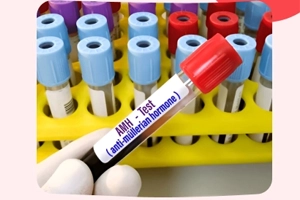
Best Nutritional Foods to Improve Women’s Egg Quality
When it comes to female fertility, maintaining good egg quality is essential for women trying to conceive.
While many factors contribute to egg health, one of the most crucial factors that women can control is their diet. Eating nutrient-rich foods can help improve egg quality and increase the chances of conception.
If you’re looking to improve your fertility naturally, these foods are known to boost egg quality and give your reproductive health a little lift.
Leafy Greens & Cruciferous Vegetables
Leafy greens like spinach, kale, and Swiss chard are packed with folate, a B-vitamin that plays a key role in cell division and DNA synthesis. Folate is essential for women trying to conceive because it can help improve egg quality and reduce the risk of birth defects.
Cruciferous vegetables, such as broccoli, cauliflower, and Brussels sprouts, are also rich in antioxidants and help to balance estrogen levels, which is essential for maintaining healthy reproductive function.
Key Nutrients
- Folate (Vitamin B9)
- Antioxidants
- Vitamin C
- Fiber
How They Help
These vegetables help reduce oxidative stress, a factor that can damage eggs, by providing the body with vital antioxidants. Additionally, folate promotes optimal cell division, which is crucial for healthy egg maturation.
Berries: Blueberries, Strawberries, & Raspberries
Berries like blueberries, strawberries, and raspberries are rich in powerful antioxidants, including flavonoids, which help shield the body from damage caused by free radicals. Free radicals are unstable molecules that can cause damage to eggs and decrease fertility. Consuming a variety of berries ensures that you are getting an array of antioxidants that help maintain healthy reproductive cells.
Key Nutrients
- Antioxidants (flavonoids, polyphenols)
- Vitamin C
- Fiber
How They Help
Antioxidants found in berries combat oxidative stress, helping to protect and preserve the quality of female eggs. Vitamin C also aids in the absorption of iron, an essential nutrient for fertility.
Nuts & Seeds
Nuts and seeds are rich in healthy fats, protein, and vitamins that support reproductive health. Walnuts, almonds, chia seeds, flaxseeds, and pumpkin seeds are especially beneficial. These foods contain omega-3 fatty acids, which are crucial for hormone production and cell membrane health. Omega-3s also support a healthy balance of estrogen and progesterone, two hormones essential for ovulation and pregnancy.
Key Nutrients
- Omega-3 fatty acids
- Vitamin E
- Zinc
- Protein
How They Help
Omega-3 fatty acids support the structural integrity of egg cell membranes, which is essential for maintaining their overall health and function. These healthy fats also reduce inflammation, a factor that can impact fertility. Vitamin E, another key nutrient found in nuts, protects eggs from oxidative damage and promotes overall reproductive health.
Avocados
Avocados are an excellent source of monounsaturated fats, which play a crucial role in hormone production. Healthy fats are essential for the production of reproductive hormones, including estrogen and progesterone, which regulate ovulation. Additionally, avocados are rich in folate, which helps improve egg quality and supports overall reproductive health.
Key Nutrients
- Healthy monounsaturated fats
- Folate
- Vitamin K
- Vitamin E
How They Help
Avocados support hormone balance and promote healthy egg development by providing essential fats and nutrients. The folate in avocados is crucial for healthy cell division and egg maturation.
Full-Fat Dairy Products
Consuming full-fat dairy products, such as whole milk, cheese, and yogurt, can positively influence reproductive health. Studies suggest that women who consume full-fat dairy have a better chance of conceiving compared to those who consume low-fat dairy. Full-fat dairy is rich in essential fatty acids and vitamin D, both of which are important for hormone regulation and egg quality.
Key Nutrients
- Healthy fats
- Vitamin D
- Calcium
- Protein
How They Help
Vitamin D plays a significant role in the regulation of reproductive hormones and helps to improve egg quality. Additionally, the fats found in full-fat dairy products are necessary for hormone production and can enhance fertility.
Whole Grains
Whole grains, such as quinoa, brown rice, oats, and barley, are packed with fiber, B-vitamins, and magnesium. Magnesium helps regulate blood sugar levels and supports healthy ovarian function. B-vitamins, including B6 and B12, play an essential role in hormone regulation and the overall health of the reproductive system.
Key Nutrients
- Fiber
- B-vitamins
- Magnesium
- Antioxidants
How They Help
Whole grains provide steady energy levels and support balanced hormone levels. The high fiber content helps maintain optimal reproductive health by supporting blood sugar levels and enhancing hormone function.
Eggs
Eggs are rich in essential nutrients that directly support egg quality. They contain high amounts of protein, vitamin B12, vitamin D, and healthy fats. The amino acids in eggs help improve ovarian function and the development of healthy eggs. In addition, eggs contain choline, a nutrient that is essential for reproductive health and fetal development.
Key Nutrients
- Protein
- Vitamin B12
- Vitamin D
- Choline
How They Help
The nutrients in eggs help support ovulation, enhance fertility, and improve overall egg quality. The protein content ensures that the body has the building blocks it needs to produce healthy eggs, while vitamin D and B12 play crucial roles in hormonal balance.
Beans & Lentils
Beans and lentils provide a rich, plant-based source of protein, iron, and folate—nutrients essential for reproductive health and fertility. These legumes are especially beneficial for women who are looking to increase their iron levels, as iron is essential for ovulation. Low iron levels can negatively affect fertility, so including iron-rich foods in your diet is essential.
Key Nutrients
- Protein
- Iron
- Folate
- Fiber
How They Help
Iron supports healthy ovulation, and folate aids in egg quality and reproductive health. The fiber in beans and lentils supports hormonal balance and aids digestion, both of which play a vital role in enhancing fertility.
Pomegranates
Pomegranates are loaded with antioxidants, particularly polyphenols, which can help improve blood flow to the reproductive organs and promote healthy ovarian function. Pomegranates are also rich in vitamin C, which enhances the absorption of iron and helps maintain the health of eggs.
Key Nutrients
- Antioxidants (polyphenols)
- Vitamin C
- Potassium
How They Help
The antioxidants in pomegranates help protect eggs from oxidative damage and support overall reproductive health by improving blood circulation and nutrient delivery to the ovaries.
Salmon & Fatty Fish
Salmon and other fatty fish are rich in omega-3 fatty acids, which are essential for hormonal balance and healthy egg production. These fats also help reduce inflammation and improve the quality of eggs. Fatty fish is also an excellent source of vitamin D, a nutrient that plays a crucial role in reproductive health.
Key Nutrients
- Omega-3 fatty acids
- Vitamin D
- Protein
How They Help
Omega-3 fatty acids support egg quality by maintaining healthy cell membranes. Vitamin D plays a key role in regulating reproductive hormones, supporting healthy ovarian function and proper egg development.
Conclusion
Improving egg quality is essential for women trying to conceive, and diet plays a significant role in supporting reproductive health. By incorporating a variety of nutrient-rich foods, including leafy greens, berries, healthy fats, and proteins, women can enhance egg quality and fertility. Remember, a balanced diet that supports hormonal balance and reduces oxidative stress is key to maintaining healthy eggs. Along with lifestyle changes, a nutritious diet can significantly increase the chances of conception.

















